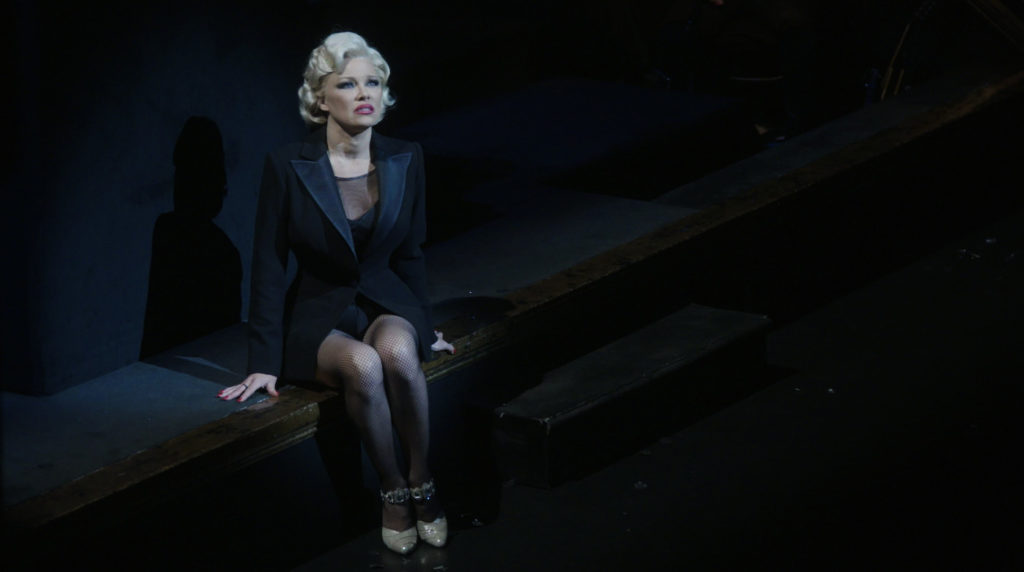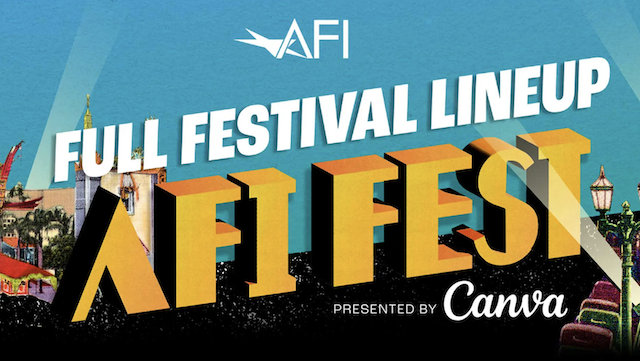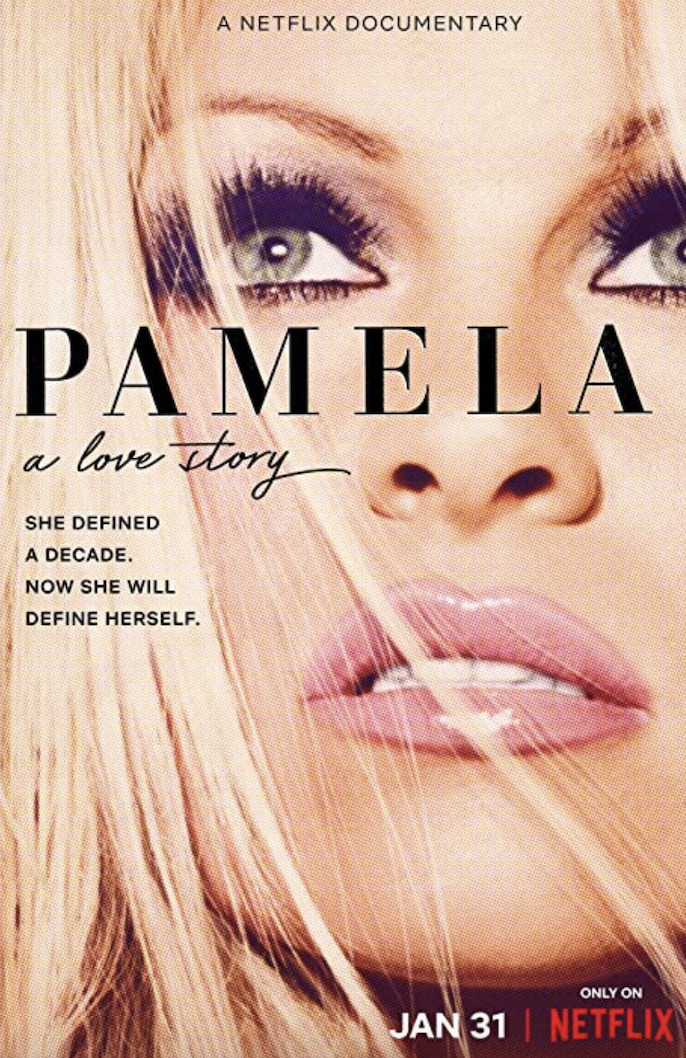
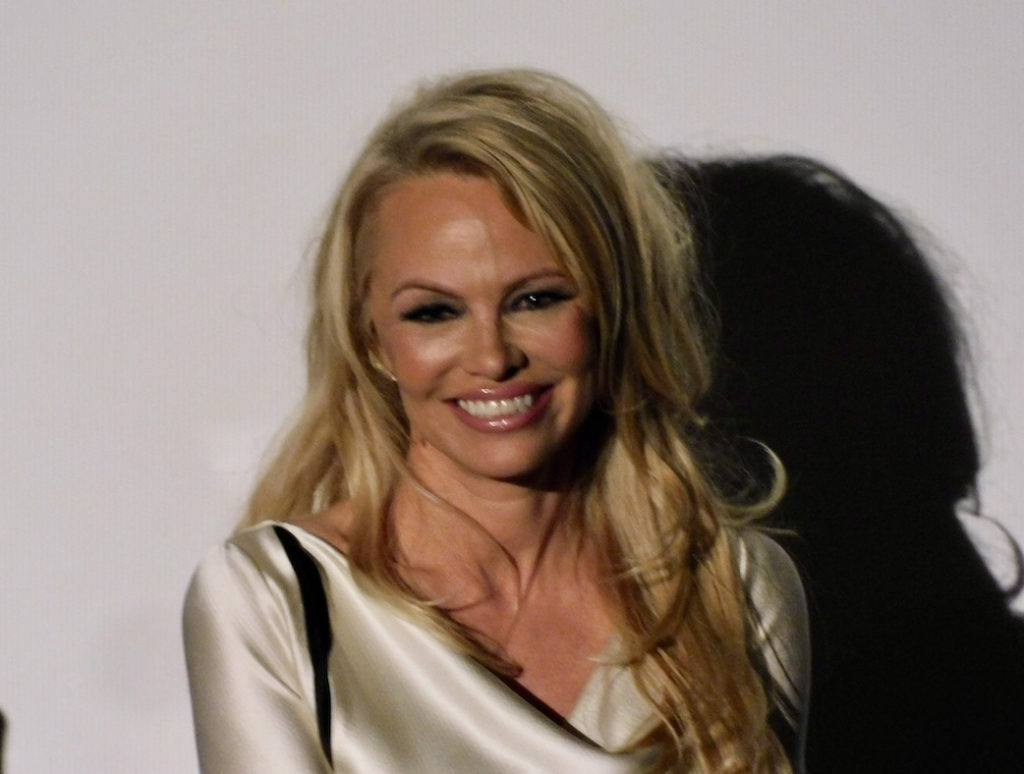
Q&A with Actress Pamela Anderson, Director Ryan White and Producer Brandon Thomas Lee
Q: Pamela, you are telling your story in your own words, literally. How did this project come about? You didn’t just say, “I’m going to do a documentary.”
PA: Oh, no. No.
BTL: That’s my fault. For as long as I can remember, Pamela has been a very misunderstood, misrepresented individual. Over my whole life, I felt the need to give her the opportunity in some way to present her life in a visual medium. I always knew that her memoir would come out one day. It’s out now, it’s fantastic. There’s such a visual aspect to this woman’s life that I really wanted represented, whether it’s her career in entertainment, photos.
[to Pamela:] You’re such an icon to so many people, and you’re such a taste-maker in such a visual medium that I thought this was the opportunity to represent that. And then also bring in all the other aspects surrounding your family history and personality, and bridge the gap that way. Then let the book do what it was going to do as well.
But I thought this was the best opportunity to take someone that wouldn’t necessarily pick up a copy of her book, and give them the opportunity to understand her as well.
Q: So he pitched you, and it seemed like a good idea?
PA: I worked for him. He could talk me into anything. I knew this was going to be a wild kind of family-legacy artistic project, and I wanted to do one of those things that I wanted to do, and have 100% faith, throw myself into it and see what the heck someone can try and make of all of this mess I made.
Q: Originally, you did not think you were the right person for this project. Is that correct?
RW: Yeah, it’s all because of my preconceived notions of who Pamela Anderson might be. When I introduced the film, I talked about this conversation that we had that went for two or three hours, and Pamela didn’t ask anything about the documentary or what my goals were or what the process was going to be like. For twenty minutes of the conversation she was asking questions about my mom. I remember the conversation was so captivating and so surprising to me that I was pretty sold.
Then Pamela sent me an email afterwards — I love getting Pamela’s emails — that basically said we could make something really special and “It’s not because of who I am like in the Playboy modeling scene.” She says, “This wasn’t because I was good looking, but I realized I was good at something.” So she said, “It’s not because of who I am, but, who knows what can happen when two artists collide” was the expression she used. I was very taken by that.
Pamela is incredibly experienced, and not calculating at all. She loves being in the moment and doing these things just as she’d done as a model or an actress. But once I was gone, I was gone. She would forget about it and she had no questions. Brandon was involved, and so it really was a very artistic expression for both of us to get to make this film together.
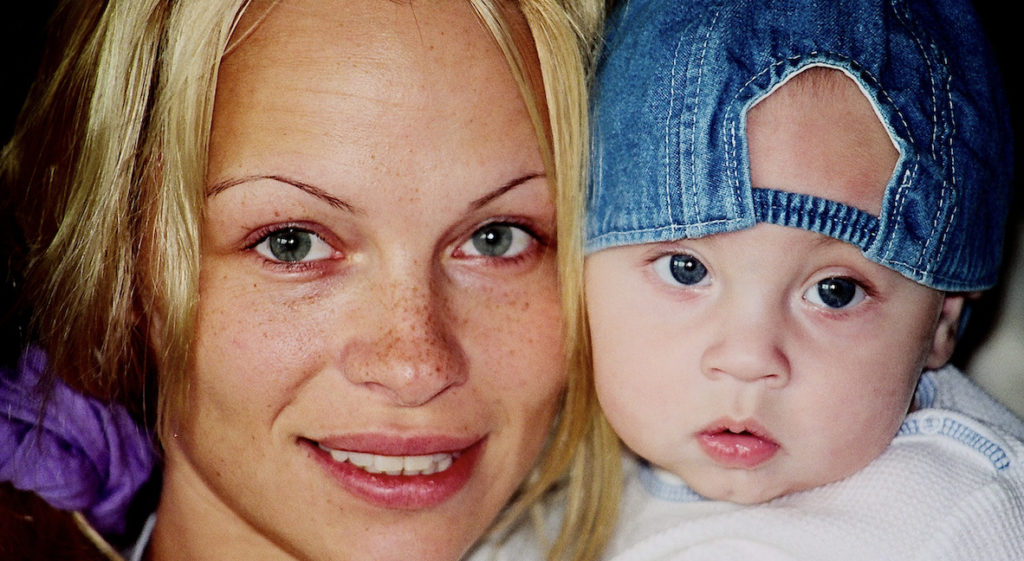
Q: You are just your authentic self, and that really shines through in this documentary film. Where does that come from? Was it your mom?
PA: I just think, “Why not?” Everyone’s different, let’s try and date those feelings that nobody else has. We all have a purpose, and if we can just find our unique, forward-thinking ideas, that’s where all the interesting, good stuff is. So I thought, “I’m no different. If somebody else can do it, I can do it, and I just don’t know what I’m capable of yet.” I always say that. I want to push myself to the limit and find out what I am. I don’t know what my purpose is, but I know I’m finding out by doing and getting through a lot of things. I think our survival mechanism is to try and have a good time, even if things are hard.
Q: Brandon, you’re a producer on this film and also the person who lobbied the talent to get them to sign up. But you’re also a central figure in this story. You’re her son. How did you balance the role of being a producer and someone who is intimately part of this story as well?
BTL: There were definitely times where I thought, “Am I going to be able to keep a level head as a producer on this project, because I want to do what’s best for the film and what’s best for the truth of the story?” There was a lot of stuff in the film about my family and what was going on. But it was also [that] I was watching a lot of my life coming together in reverse — you know what I’m saying? I don’t think that a lot of people get to do that. I’m watching things that happened with my family in the public eye. I remember circumstances when I was a kid, like, “Oh, I remember moving to this place, and I remember this person’s face, and I remember that.” But the rest of the world knew the full story and I didn’t. For me, a lot of this was catching up to that. It was a lot of discovery for me and it was very emotional.
Q: It sounds slightly therapeutic.
BTL: I think it was, and it was a very singular experience. In terms of keeping the balance, I really — a lot of it for me Ryan knows. The first time I watched the first cut, five seconds, I couldn’t even hold it together. It was a very powerful experience, and I think a lot of it for me was just: stay in the moment, do what’s best for the film. Usually the car rides home were tough because I’d just try to stay in there and stay in work mode. But for sure it was a difficult experience.
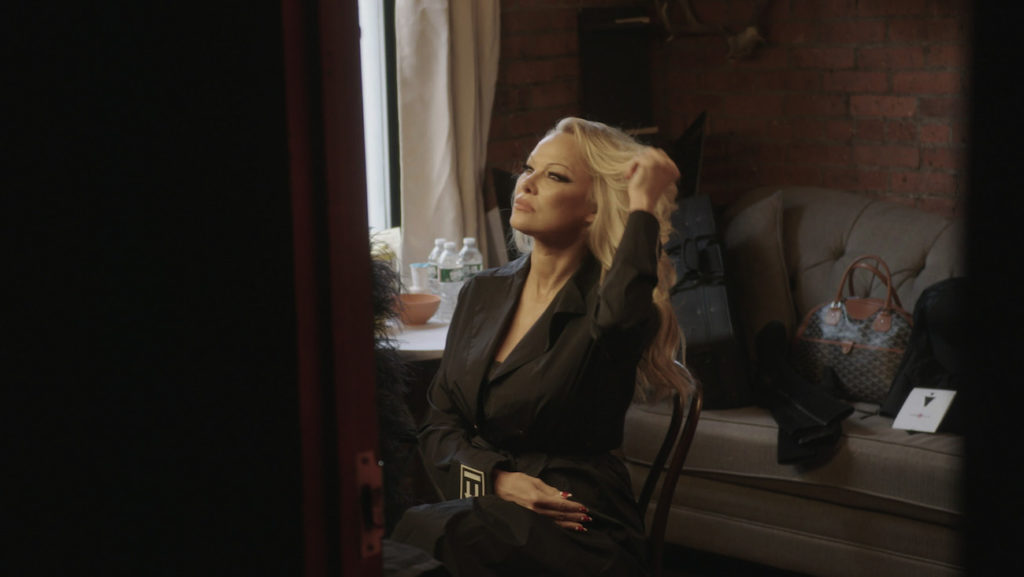
Q: Have you watched the film?
PA: I was more concerned about Dylan [her other son] so I didn’t really know what happened.
Q: Ryan, part of what makes this film so rich is that there’s all this archival footage on camcorders and these diaries that Pamela had written and saved over the years. How much were you given and what did you do with it? How did you even figure out what to use?
RW: It was so much stuff. But that stuff was sort of an urban legend. Like in my first footage with Brandon — I was wary of making this film, so in some ways he was trying to sell me, like “Just meet with my Mom. I think you guys are going to connect.” And he’s like, “We have THOUSANDS of hours of family archives, and it’s everywhere.” And then when we got on the Zoom, Pamela was saying “I think I might have a lot of stuff, but I never looked at any of it.” I remember saying to you [Pamela], “Whatever”.
PA: I said, “I don’t save anything.”
RW: “Anything.”
PA: Anything. But, there’s a storage space up in the loft, so there might be some stuff up there. Here’s the key so just go [up]. The only thing I want to do is have something to do with this. Use whatever you want. While he’s there, he’s like, “Everything!” I’d saved ev-ery-thing. Every report card. Every “V.I.P.” episode. Everything. Bathing suits. Bikinis I got married in. Everything. So you had everything right there.
Q: Ryan, how did you decide what to use and what was most critical to tell the story?
RW: In the beginning, it was very haphazard. We were there for a week and Brandon came with us. It takes a ladder to get up to that loft. My assistant Jonathan would put it up for us, we would go up there, and bring all these crates down. We went to a pawnshop in her town, got a TV and VCR. Then we spun all the tapes out. Everyone — there would be a crew of five [or] six people — was plugging things in to see what was on them. And, by the way, none of those scenes in the film are staged in any way. Pamela is a wanderer, a total free spirit.
She would wander in from time to time while we were watching tapes, and sit down. I would put something in and my camera people, Dominique [Hessert-Owens] and David [Paul Jacobson] [would] just roll it. She only did that the first weekend. I’d always joke that every time I came to Canada, I would pitch all these grandiose ideas to Pamela of what we’re going to do, and she’d look at me and say, “That sounds dumb.” I learned that you’re better be humble as a director and just follow the Free Spirit. We did a road trip earlier together, and she said, “Just so you know, in my career, if I was ever told, ‘You can wear whatever you want but don’t wear red to the photo shoot, I’d show up in red. So just tell me if I’m going to ruin that for you Ryan.”
But I never told her, of course. I knew that there was no way. So it was just Pamela always kind of floating, and sometimes she’d want to watch these things, and then after the first shoot, she said, “I won’t do that again. It was too triggering.” Then we got a cargo van, and Dominique — who knows better than anyone in the entire room, because she’s the one reading every single diary and transcribed them — was doing the Scratch narration. Brandon heard her voice and said, “How can we go to a voiceover actor? If my Mom doesn’t want to do it, we have an expert who knows my Mom better than anyone.” So Dominique and her husband did a five-day road trip with the cargo van with every diary of Pamela Anderson’s. We can’t FedEx Pamela Anderson’s diaries. People would steal that [stuff], as we know now. [So they brought them] in a van back to Los Angeles.
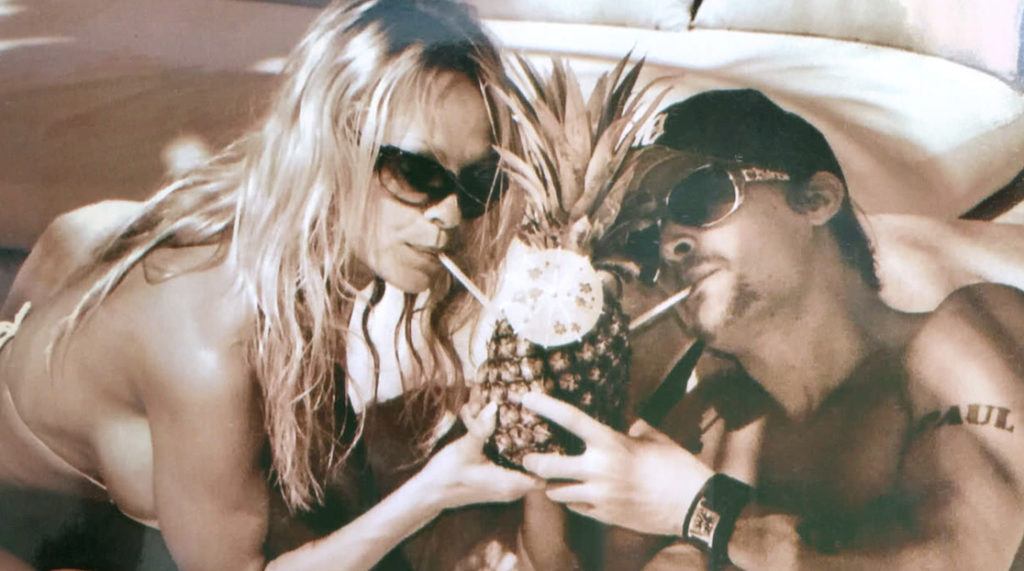
Q: [To Pam] People believe you were compensated for the tapes. In this film we learn that, not only were you not compensated, you were offered five million dollars and you said no. You were not compensated because you didn’t want to be paid. It took all these years for that piece of the story to be told. Why?
PA: I didn’t think anyone wanted to believe it. Plus, we just let it go. After the depositions and all the craziness, I was pregnant with Dylan, and pretty well stressed with a baby. Tom and I decided that f-them. I wrote what I wrote, and I just left it. We really tried to leave it in the past. That was it. So we didn’t go out and do a press tour talking about what money we didn’t get. That was just something like dirty money. I didn’t want it. Yeah, we ended up okay.
Q: You made the point [in the film] that you felt like you had become a caricature. But instead of just rolling over, you said, “Okay, I’m going to use that to my advantage for these causes that I care about.” That’s the art of the pivot. Was that your intention?
PA: When I first started getting a lot of attention, I thought I’d have to share this attention with something more meaningful. That’s when I started stalking PETA and all these activist groups, because I thought I’d get a lot of attention. It seems so superficial. So I used it to buy advantage; only I would go speak to world leaders. They want a kiss on the cheek and an autograph; I wanted laws to be changed. We both got what we wanted.
Q: Can you think of a moment where you can say, “I am very glad we did this together”?
RW: Well, there’s nobody else — at least that I know in the world — like Pamela Anderson. She’s totally one of a kind. My biggest job as a documentary filmmaker always, in all my films, is building trust the better your subject is. I would love it if Pamela and Brandon were here to pump up some fake story about how I pounded the pavement for months to win Pamela’s trust but the truth is, that’s what makes Pamela one of a kind. She’s a very trusting, open person. So once she commits to something, she’s all in. Normally, it would be a nightmare. Pamela and I were talking about this at dinner, [where I said,] “To have a family member, a son of “the Python,” producing your film — that’s unusual.”
It was essential that we be aligned because Pamela handed over everything — every diary that she’s ever written or tape shot in her entire life, and didn’t look at them. But she had her son as this kind of stopgap. I believe we were trustworthy, but had we not been, he was there to see what we were putting into the film. The very first day, Pamela shuffled down from her road house to the beach house where we filmed, and normally, to do a warm-up interview, or a whole warm-up shoot where you’re getting your subject’s intro. Instead, we sat for six hours on what we called the “wait couch” and her in her cardigan. I remember Brandon walking in at some point, because he was downstairs looking at the tapes. Pamela noticed him and it was an emotional moment — I don’t remember what the topic was — but it was emotional. Brandon was like, “Oh, I’ve got to get out of here, sorry.” Later he said, “Wow, you guys were going deep real fast.” And that’s Pamela. Once she’s in, she’s all in. She was ready to throw her heart on the table in a way that’s incredibly rare, especially in celebrity documentaries these days.
Q: Ryan, what do you want people to take from the film?
RW: We have to remember at the end of the day, obviously, we’re all sitting here having a fantastic time celebrating the life of this woman. But realistically, the way she was treated was unacceptable, to say the least. We should all be ashamed of ourselves for being a part of that. I think the media and the way things have changed moving forward, we would never, ever treat a woman in that position the same way today. That’s what people don’t really talk about. I just want people to understand from the film the way she was treated and to look up now, look at you [looking to Pamela] and see how you’ve remained positive and a light for so many people over the years. You’re truly an inspiration.
